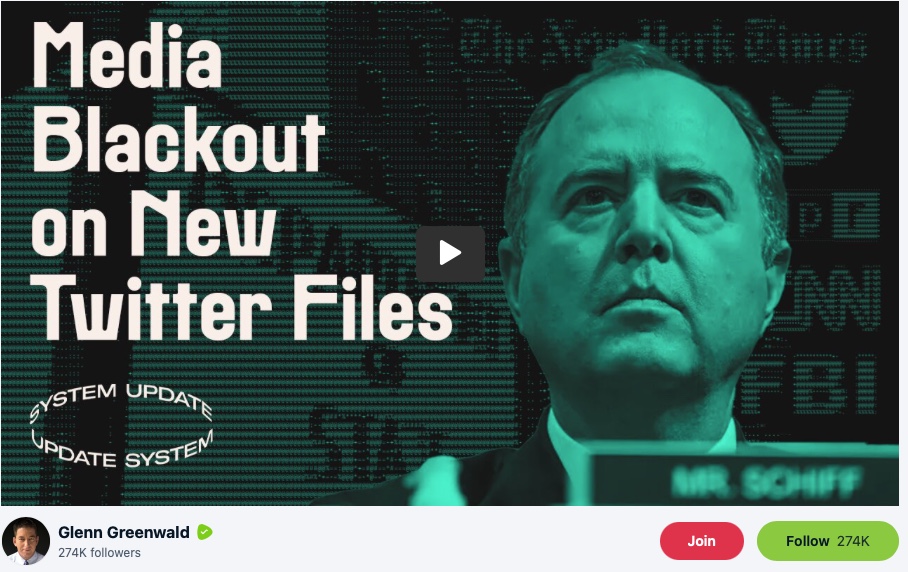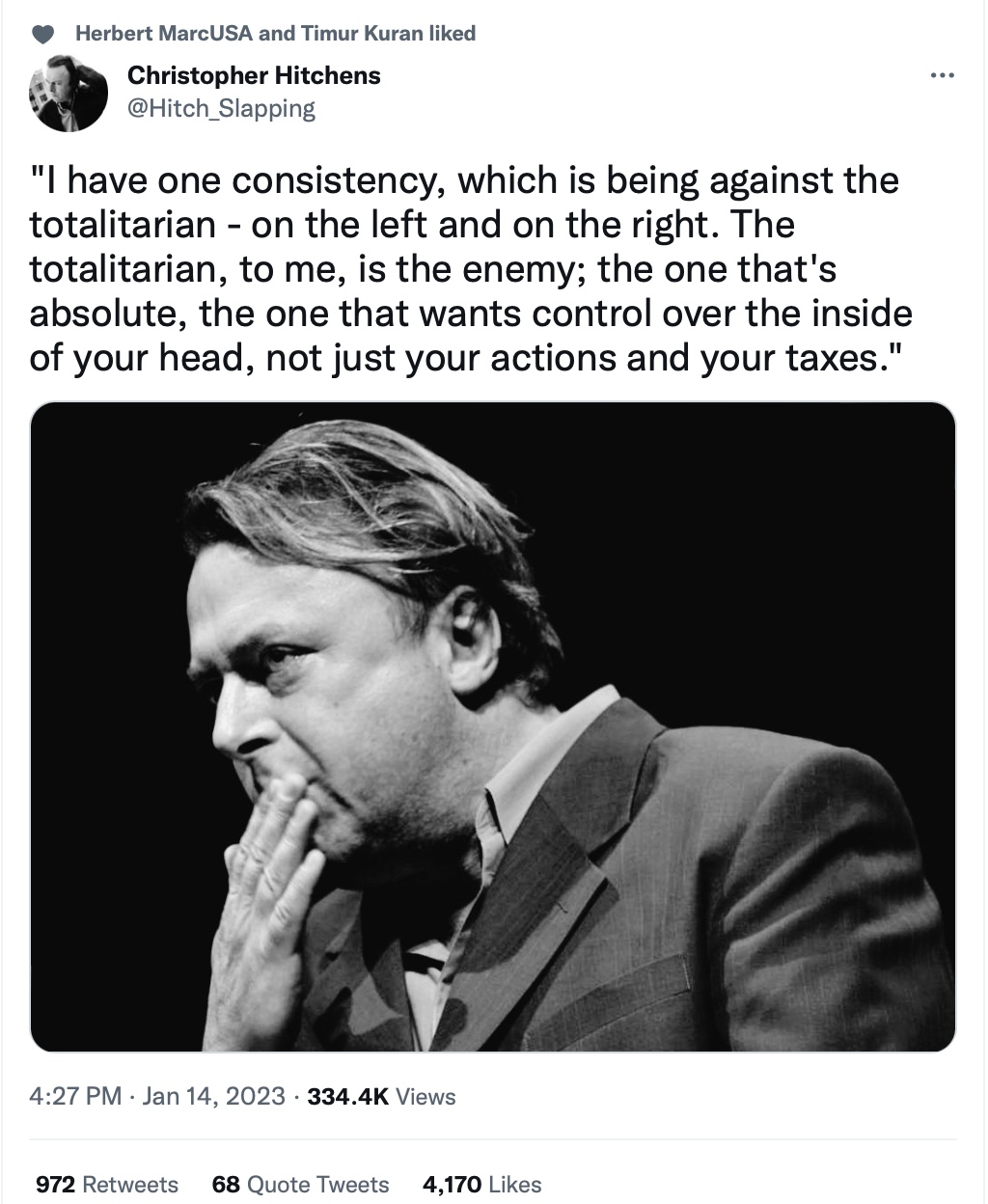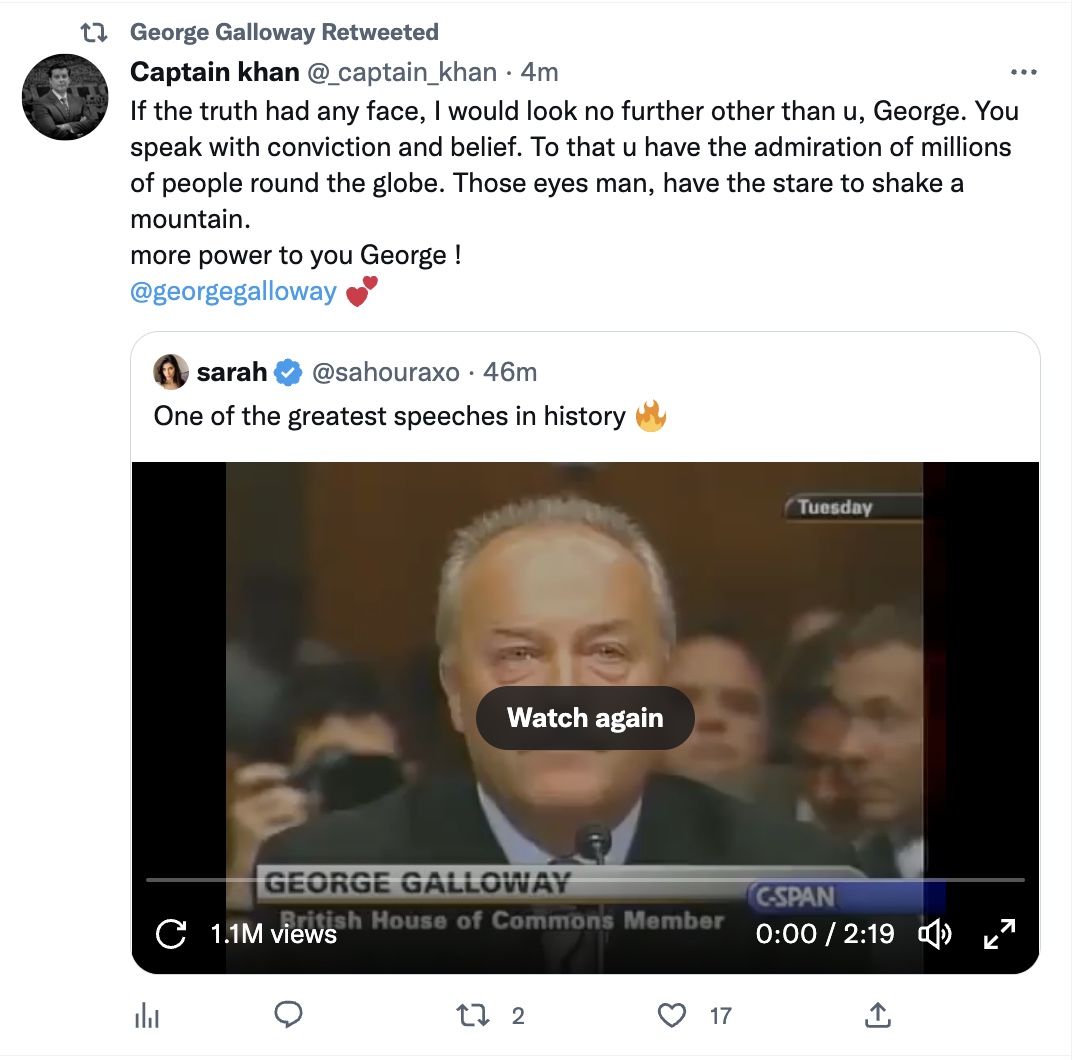because I follow these trends closely, but . . . For the past month Matt Taibbi has been reporting in detail that the FBI, DHS, DOD, CIA and other agencies have built a system for mass delivery of censorship requests to firms like Twitter and Facebook. MSNBC has now accused Taibbi of fueling authoritarianism with his reporting. Taibbi responded by listing some of the many pro-censorship advocates currently lurking around at MSNBC, people who call themselves journalists:
John Brennan, former Director of the CIA, now senior intelligence analyst at MSNBC
Frank Figliuzzi, formeer Assistant Director of Counterintelligence at the FBI
Asha Rangappa, former Special Agent for the FBI, specializing in counterintelligence
Nicolle Wallace, former Communications Director for George W. Bush
Jeremy Bash, former Chief of Staff of the CIA
Clint Watts, former FBI counterintelligence agent and MSNBC national security analyst
Chuck Rosenberg, former Acting DEA administrator and senior FBI official
Nayyera Haq, former Senior Director of the White House
Richard Painter, former Chief Ethics lawyer in the George W. Bush White House
Neal Kaytal, former Acting Solicitor General of the United States
Ben Rhodes, former National Security Advisor to Barack Obama
Barry McCaffrey, former U.S. Army General and Drug Czar, security analyst for NBC and MSNBC
Stephen Twitty, former Lieutenant General of the U.S. Army
Joyce Vance, former U.S. Attorney
Barbara McQuade, former U.S. Attorney
Glenn Kirschner, former Assistant U.S. Attorney
For more on the abject silence of the left-leaning legacy media, its refusal to acknowledge the obviously disturbing importance of Taibbi's recent reporting on the Twitter Files, consider this episode of Glenn Greenwald's System Update on Rumble. The title: "Media Silent as Twitter Files Expose Flagrant Misconduct in Govt. & Journalism."




